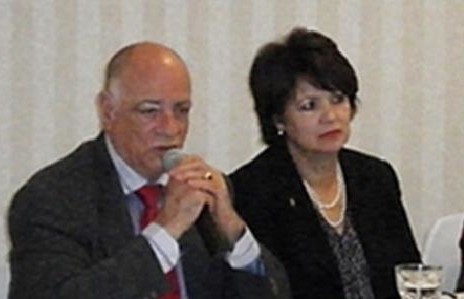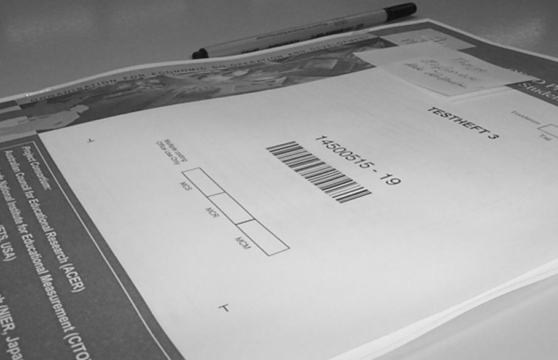
National Conference on Teacher Policy in Costa Rica
Workshop that seeks to promote debate on teacher policy and showcase innovative policies.
On April 1st—Easter Sunday, no less—Costa Rica avoided electing an evangelical preacher and religious singer, Fabricio Alvarado, as president in favor of ruling party candidate Carlos Alvarado (no relation).
Secularists, liberals, and supporters of LGBTQ rights in Latin America’s oldest democracy collectively breathed a sigh of relief. But their optimism should be tempered. Fabricio is unlikely to be the last serious evangelical populist president candidate in a region historically dominated by Catholicism. He may even be the breaking edge of a wave, driven not only by the region’s changing religious dynamics, but also by widespread dissatisfaction with corruption, the status quo, and politics in general. In Brazil, for example, Pentecostal enthusiasm is helping the candidacy of its own hard-right candidate, former army parachutist Jair Bolsonaro, who is currently second in the polls for October’s presidential election.
Latin America is home to nearly 40% of the world’s Catholics, yet evangelicals now account for almost 20% of the population, up from 3% three decades ago. This community has gained political influence across Latin America primarily through their opposition to same-sex marriage, abortion, and other issues of “gender ideology,” as Javier Corrales recently argued in the New York Times. In doing so, evangelicals have forged new alliances with conservative groups—helping turn traditionally elite and establishment-friendly right-wing parties into more populist “people’s parties.”
In part, this is a backlash against social advances, including the acceptance of same-sex marriage in Argentina, Brazil, Colombia, and Uruguay and civil unions in Chile and Ecuador. But ideology alone is a weak explanation for the rise of right-wing religious politics. Latin America’s crumbling faith in institutions—including the Catholic Church—may be opening the door to new forms of populism driven by conservative ideology and a more personalistic view of faith.
This “theo-populism” is, in a sense, just as much a product of anger over insecurity and corruption. Multiple surveys confirm that trust in institutions has plummeted across Latin America—a crisis of faith that seems to reject traditional and political authorities. Of course, evangelical leaders may be no more deserving of that trust: take Brazilian evangelical politician Eduardo Cunha, who was expelled from office for corruption less than two weeks after orchestrating the impeachment of President Dilma Rousseff. But that seems beside the point. Appeals to spiritual authority, strict social policies, and pledges to combat social rot have clearly resonated among voters looking for moral purity and a clean political slate.
Costa Rica fits this pattern. Alvarado, previously unknown, shot to the front of the polls as part of a response to the January decision by the Inter-American Court of Human Rights mandating the legalization of same-sex marriage. But he also came close to winning in part because of frustratingly high crime rates and a sprawling corruption scandal involving Chinese cement and a wide variety of political and business leaders. This discontent with crime and corruption, in turn, dampened enthusiasm for his opponent, Carlos Alvarado, who represents the party of sitting President Luis Guillermo Solís.
The same is true in Brazil. As the country emerges from the worst recession in its history, violent crime is on the rise and new corruption scandals emerge almost daily. Bolsonaro is the most ardent and radical critic of this status quo. Widely regarded as an apologist for torture and the country’s military dictatorship, he has positioned himself as an alternative to the establishment, highlighting the lack of allegations against him in 26 years of public life. And while Bolsonaro has toned down some of his rhetoric, his push for socially conservative policies and increased “law and order”—including ultra-hardline promises to fill his cabinet with military officers and put guns in the hands of private citizens— has earned strong support from the evangelical movement and its wide network of churches, media, and community organizations.
Looking forward, how this theo-populist wave develops may depend, in part, on how candidates like Fabricio Alvarado continue to advance in elections ahead of more moderate figures. Victory in the polls will obviously embolden evangelical and right-wing voters. Counter-intuitively, losing may frustrate voters and give fodder to increased anti-establishment feelings. Costa Rica dodged a bullet, but the underlying discontent will not go away.
Winning, on the other hand, may be the only thing that can defeat this populist energy. To be sure, radically social conservative governments could have widespread negative implications for the rights for women, LGBTQ, and minority communities. But if their movements are fueled by anti-establishment sentiment more than religious fervor, these candidates will likely end up disappointing their voters. Without clear and coherent platforms for reform—Bolsonaro, for example, has been open about his lack of clear economic plans—their inability to bring rapid institutional change will be readily apparent. These populists may even bring about more corruption and dysfunction, much like what happened in Peru under populist President Alberto Fujimori, who benefited significantly from conservative evangelical support in the 1990s. Fujimori went on to serve almost a decade in prison for embezzlement and human rights violations.
Of course, the religious coalition will not evaporate overnight. The relatively enduring support for US President Donald Trump among evangelical voters is instructive. But if corruption and political cynicism continue to almost elect leaders like Alvarado, those candidates may face a similar fate to Latin America’s only sitting evangelical leader: Guatemalan President Jimmy Morales. Morales, who campaigned in part on his faith, was elected on the simple slogan of “not corrupt, not a thief” in the wake of a presidency-ending corruption scandal. Now Morales has been investigated for campaign finance irregularities, his brother and son are on trial for fraud, and his approval ratings are in the low 20s.
In any case, the long-term implications for democracy are not good. Kevin Casas-Zamora, a former vice president of Costa Rica, reported that when talking to voters leaning towards Fabricio Alvarado, he heard the same repeated phrase: “if a man of god can’t govern us, then nobody can.”
Costa Rica decided not to test that proposition—but the rest of Latin America may choose differently.
Workshop that seeks to promote debate on teacher policy and showcase innovative policies.
What is the real value from the PISA 2009 Plus results?
Key takeaways for the eight Latin American countries that participated in the 2012 PISA.
